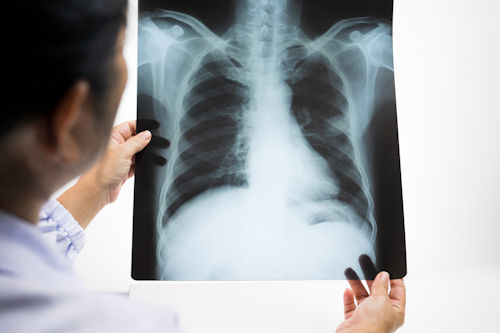
My thoughts on SWORD and improving reporting schemes
Dr D Fishwick is a Reader in Medicine and Honorary Consultant Respiratory Physician at Royal Hallamshire Hospital, Sheffield. Here, he talks about why he joined SWORD and his thoughts on reporting schemes in general.
I have been a reporter to SWORD since taking up my consultant post several years ago in Sheffield.
I have always had a major interest in occupational aspects of respiratory disease and feel strongly that this component is missed, ignored or misunderstood during standard consultations in secondary care. This situation is even more problematic in primary care.
Reporting schemes fulfil many functions and, to succeed, clearly require an enthusiastic group of regular reporters who understand and feel part of the process and the need to collect such data.
I report to SWORD for three main reasons. Firstly, I use the SWORD reporting scheme as an internal system to track my own patients. The reporting card data are transcribed into my local database in order that I can ensure lack of duplicate reporting. This also gives the department access to well categorised patient data in case of potential research studies.
Secondly, I enjoy reading the data generated by SWORD. This allows identification of new, novel causes of disease, often identified by a sentinel case.
Thirdly, I feel it is essential that all those seeing such cases actively contribute to make the point that the link between exposure and disease still exists. Data from such schemes are scrutinised appropriately by legislators and policy makers.
I feel there are current limitations with all such schemes (many of the international schemes are based on the SWORD model). I would like to see more interaction between reporters and the database, so that reporters feel that as contributors, they can easily address particular questions using the data.
I would also like to see reporting systems change to ensure the greatest accuracy for identification of cases. The use of more advanced epidemiological techniques such as capture/recapture will clearly help.
Finally, all clinicians struggle with accurate definitions of occupational lung disease and, in particular, the definition of occupation asthma. We urgently need to compare apples with apples and work to common definitions.
Whilst the reporting schemes have traditionally relied upon the individual physician’s decision to report a case, reporting schemes should reflect the fact that there are genuine differences in opinion diagnostically throughout the UK and, only by addressing these, will we begin to understand the true size of the problem.
One way of tackling this issue would be to report work-related symptoms alone, irrespective of diagnosis, in the case of asthma.
I am committed to the future of such schemes. The government uses these data to plan services and it is essential that physicians continue to make the point that occupational exposures can be exceedingly harmful.
Find out more about the SWORD reporting scheme.




0 Comments